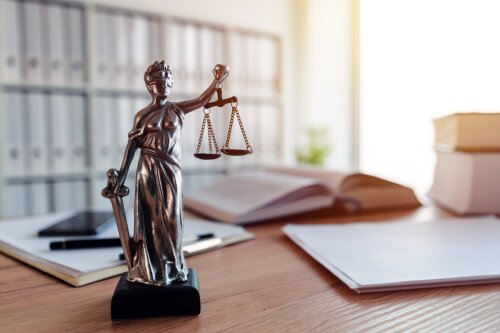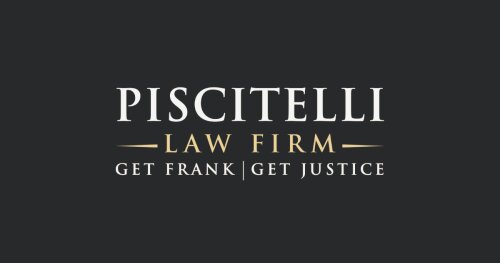Best Defamation Lawyers in Ohio
Share your needs with us, get contacted by law firms.
Free. Takes 2 min.
Or refine your search by selecting a city:
List of the best lawyers in Ohio, United States
About Defamation Law in Ohio, United States
Defamation is a legal term describing a false statement made about someone that damages their reputation. In Ohio, defamation can arise as either libel (written or published defamation) or slander (spoken defamation). The purpose of defamation law is to protect individuals and businesses from harm caused by false statements, while also balancing the right to free speech. If you believe your reputation has been damaged by someone’s false statements, or if you are accused of making such statements, it is important to understand your rights and responsibilities under Ohio law.
Why You May Need a Lawyer
There are several situations in which you might seek legal help for a defamation issue in Ohio:
- False Accusations: If you have been falsely accused of a crime or serious misconduct and it has harmed your reputation.
- False Business Reviews: If your business is subject to a false and damaging review that impacts your operations.
- Social Media Statements: If someone posts untrue statements about you or your company online.
- Professional Harm: If statements made by a colleague or former employer jeopardize your employment or career prospects.
- Defense: If you are being sued for defamation and need to defend your rights.
Legal professionals can help analyze your situation, determine if the statements qualify as defamation under Ohio law, and guide you on the best course of action.
Local Laws Overview
Ohio defamation laws share similarities with general United States standards, but also have specific requirements:
- Elements of Defamation: In Ohio, a plaintiff must prove four elements: (1) a false statement; (2) the statement was defamatory; (3) the statement was published to a third party; and (4) the plaintiff suffered harm as a result.
- Opinion vs. Fact: Statements of opinion are generally not considered defamation. Only false statements of fact qualify.
- Public vs. Private Figures: Public figures and officials must prove actual malice; that is, the statement was made knowingly false or with reckless disregard for the truth. Private individuals generally only need to prove negligence.
- Statute of Limitations: In Ohio, you must file a defamation lawsuit within one year of the publication of the statement.
- Defenses: Truth is always a complete defense to defamation. Privilege or consent can also be valid defenses.
- Damages: Plaintiffs may seek compensatory damages, and in some cases, punitive damages for especially harmful conduct.
Frequently Asked Questions
What is considered defamation in Ohio?
Defamation occurs when someone makes a false statement of fact about another person, publishes it to a third party, and the statement damages the person's reputation. The statement must not be an opinion or protected by privilege.
What is the difference between libel and slander?
Libel refers to written or published defamation, while slander is spoken defamation. Both can be grounds for a lawsuit in Ohio.
How long do I have to file a defamation lawsuit in Ohio?
Ohio law requires defamation lawsuits to be filed within one year of the defamatory statement's publication.
Can I sue for something someone said on social media?
Yes. False statements made on social media that harm your reputation may be considered defamation if they meet the legal requirements in Ohio.
What defenses are available against a defamation claim?
Common defenses include proving the statement is true, the statement was an opinion, or the statement is privileged (such as in court proceedings).
Do public figures have a harder time proving defamation?
Yes. Public figures must prove the statement was made with actual malice, meaning the person knew it was false or acted with reckless disregard for the truth.
Is it defamation if the statement did not cause any harm?
If there is no injury to your reputation or livelihood, you may not have a viable claim. Harm is an essential element in defamation cases.
Can I recover damages for emotional distress in a defamation case?
Yes, damages for emotional distress are possible if you can prove that the defamatory statement caused emotional harm.
What should I do if I am served with a defamation lawsuit?
Contact an attorney immediately. You need to respond by the deadline set by the court, and a lawyer can help protect your rights and develop a defense.
Can employers be liable for defamation in job references?
Potentially, yes. However, employers are often protected by qualified privilege, as long as the information is shared in good faith and is not knowingly false.
Additional Resources
For more information and assistance on defamation issues in Ohio, consider these resources:
- The Ohio State Bar Association - Offers legal guides and a lawyer referral service.
- Legal Aid Societies - Provide free or low cost legal help to qualifying individuals.
- Ohio courts and county clerk offices - Provide official forms and filing instructions.
- Local law libraries - Offer access to legal texts covering defamation law.
Next Steps
If you think you have been defamed or are accused of defamation in Ohio, take the following steps:
- Document Everything: Save copies of the alleged defamatory statements and any evidence of harm.
- Do Not Respond Publicly: Avoid escalating the situation online or in public forums, as this could backfire.
- Consult with a Lawyer: Reach out to a qualified attorney familiar with Ohio defamation law to discuss your case.
- Understand Your Deadlines: Remember that Ohio has a one year window to file a lawsuit, so act promptly.
- Consider Alternative Resolution: Mediation or a retraction may resolve the issue without litigation.
Seeking legal advice early can help you decide whether you have a viable case and how best to protect your reputation or defend against an accusation. If you need help, contact a lawyer to discuss your specific situation and explore your options.
Lawzana helps you find the best lawyers and law firms in Ohio through a curated and pre-screened list of qualified legal professionals. Our platform offers rankings and detailed profiles of attorneys and law firms, allowing you to compare based on practice areas, including Defamation, experience, and client feedback.
Each profile includes a description of the firm's areas of practice, client reviews, team members and partners, year of establishment, spoken languages, office locations, contact information, social media presence, and any published articles or resources. Most firms on our platform speak English and are experienced in both local and international legal matters.
Get a quote from top-rated law firms in Ohio, United States — quickly, securely, and without unnecessary hassle.
Disclaimer:
The information provided on this page is for general informational purposes only and does not constitute legal advice. While we strive to ensure the accuracy and relevance of the content, legal information may change over time, and interpretations of the law can vary. You should always consult with a qualified legal professional for advice specific to your situation.
We disclaim all liability for actions taken or not taken based on the content of this page. If you believe any information is incorrect or outdated, please contact us, and we will review and update it where appropriate.
Browse defamation law firms by city in Ohio
Refine your search by selecting a city.












